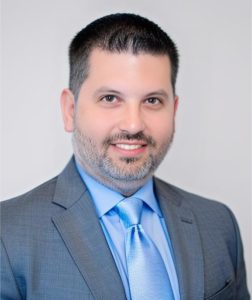Coral Gables Living Will Attorney | The Estate Plan
Award winning living will law firm in Miami
Living Will Services
Medical emergencies can strike without warning, leaving families to make heartbreaking decisions about life support, artificial nutrition, and other critical treatments when a loved one cannot communicate. A Coral Gables living will attorney ensures your healthcare wishes are clearly documented, helping prevent family disputes and medical uncertainty during life’s most vulnerable moments.
Contact The Estate Plan at (305) 735-2689 to create comprehensive advance directives that safeguard your autonomy and provide peace of mind for you and your loved ones.
Table of Contents
- Key Takeaways About Coral Gables Living Wills
- How The Estate Plan Protects Your Healthcare Autonomy
- Florida Living Will Requirements Explained by Coral Gables Attorneys
- Important Provisions to Include in Your Florida Living Will
- Why You Should Appoint a Healthcare Surrogate in Florida
- Updating and Maintaining Living Wills in Miami-Dade
- FAQs for Coral Gables Living Will Attorneys
- Protect Your Future With a Coral Gables Living Will Attorney Today
Key Takeaways About Coral Gables Living Wills
- Living wills in Florida become effective only when two physicians certify you lack capacity to make medical decisions and face a terminal, end-stage, or persistent vegetative condition.
- Healthcare surrogates designated in advance directives have broader authority than family members chosen by default statutory priority.
- Florida law requires specific language and witnessing procedures for valid living wills, making attorney guidance valuable for avoiding technical defects.
- Living wills work alongside healthcare surrogate designations and HIPAA authorizations to create comprehensive medical decision-making frameworks.
How The Estate Plan Protects Your Healthcare Autonomy

We go beyond basic document preparation, taking time to understand your healthcare philosophy and family dynamics. Our attorneys explain how living wills interact with other advance directives, creating comprehensive plans that address both routine medical decisions and end-of-life scenarios.
Comprehensive Advance Directive and Living Will Planning in Coral Gables
Living wills form one component of complete healthcare planning. The Estate Plan integrates your living will with healthcare surrogate designations, HIPAA authorizations, and physician directives to ensure consistent, legally sound medical decision-making.
Our approach also covers situations not addressed by a living will, such as temporary incapacity or non-terminal treatment decisions. We help families understand when different documents apply and how they work together during medical crises.
Florida Living Will Requirements Explained by Coral Gables Attorneys
Florida Statutes Chapter 765 governs living wills and healthcare advance directives, establishing specific requirements for validity and implementation. The statute protects patient autonomy and gives healthcare providers clear legal direction when carrying out end-of-life care.
Living wills must be signed in the presence of two witnesses, at least one of whom cannot be a spouse or blood relative. This witnessing requirement prevents coercion and validates that you created the directive voluntarily with full understanding.
When Does a Living Will Take Effect in Florida?
Many people misunderstand when living wills become operative. These documents don’t affect your care while you maintain decision-making capacity, regardless of your medical condition. You retain full authority over treatment choices until physicians determine you cannot communicate informed decisions.
Activation requires two determinations: incapacity and qualifying medical condition. Two physicians must certify both elements before your living will directs care. This dual requirement protects against premature implementation while providing clear triggers for healthcare providers.
Medical Conditions That Activate a Living Will in Florida
Florida law recognizes three conditions triggering living will provisions. Understanding these definitions helps you make informed decisions about your advanced directive language.
Terminal conditions involve illnesses or injuries from which recovery is impossible, with death imminent regardless of medical intervention. End-stage conditions represent irreversible deterioration where medical treatment only postpones death. Persistent vegetative states involve permanent unconsciousness without voluntary action or cognitive behavior.
Important Provisions to Include in Your Florida Living Will
Effective living wills address specific medical interventions and care preferences within Florida’s legal framework. Your document must clearly express preferences about life-prolonging procedures while remaining flexible enough for unforeseen medical situations.
Life-Sustaining Treatment Decisions
Living wills primarily address whether you want life-prolonging procedures when facing terminal conditions without hope of recovery. These choices depend on your personal values, religious beliefs, and views about quality of life.
Florida living wills typically address these specific interventions that require advance planning:
- Mechanical ventilation for artificial breathing support when natural respiration fails
- Artificial nutrition and hydration through feeding tubes or intravenous lines
- Cardiopulmonary resuscitation (CPR) including chest compressions and electric shock
- Dialysis for kidney failure and blood transfusions for severe anemia
These treatment options represent common decision points during end-of-life care. Your living will provides guidance when you cannot participate in these discussions directly.
Additional Considerations and Preferences
Beyond basic life support decisions, comprehensive living wills address comfort care, pain management, and spiritual preferences. You may specify desires for hospice care, preferred care locations, and whether you want religious counsel present.
Some individuals include organ donation wishes in their living wills, though separate donor registrations provide more reliable implementation. The Estate Plan helps coordinate these various healthcare documents for maximum effectiveness.
Why You Should Appoint a Healthcare Surrogate in Florida

Without designated surrogates, Florida law establishes a priority list beginning with spouses, then adult children, parents, and siblings. This statutory hierarchy might not reflect your preferences, particularly in complex family situations or second marriages.
Understanding Healthcare Surrogate Authority Under Florida Law
Healthcare surrogates make treatment decisions based on your known wishes or best interests. Their authority covers routine medical care, specialist consultations, and treatment facility selections beyond living will parameters.
Surrogates cannot override clear living will instructions or consent to experimental treatments without specific authorization. Understanding these boundaries helps you select appropriate surrogates and prepare them for their responsibilities.
Updating and Maintaining Living Wills in Miami-Dade
Living wills require periodic review to reflect changing health conditions, medical advances, and evolving personal preferences. Major life events trigger natural review points for advance directive updates.
Marriage, divorce, diagnosis of serious illness, or death of designated surrogates necessitate immediate document reviews. Medical experiences often clarify treatment preferences, making updates appropriate after hospitalizations or health scares.
The Estate Plan maintains client documents for easy updates when circumstances change. Our Coral Gables office helps you modify advance directives efficiently while maintaining legal validity.
FAQs for Coral Gables Living Will Attorneys
How does a living will differ from a DNR order?
Living wills provide comprehensive end-of-life instructions activated by terminal conditions and incapacity. Do Not Resuscitate (DNR) orders specifically refuse CPR regardless of circumstances. DNR orders require physician signatures on special forms, while living wills need only proper witnessing. Many people have both documents for complete coverage.
What happens if family members disagree with living will instructions?
Properly executed living wills legally bind healthcare providers regardless of family objections. Physicians must follow clear directive instructions even when relatives disagree. However, ambiguous language or unclear medical situations may create interpretation disputes requiring legal intervention.
Do living wills from other states work in Florida?
Florida generally recognizes out-of-state living wills if they comply with either Florida law or the state where executed. However, differences in state laws may create ambiguities. Establishing Florida-specific documents provides clearer guidance for local healthcare providers.
Can living wills address dementia and Alzheimer’s care?
Traditional living wills apply only to terminal conditions, not progressive cognitive decline. However, comprehensive advance directives may include dementia-specific provisions through supplemental documents. These additions address care preferences during various stages of cognitive impairment before reaching persistent vegetative states.
Protect Your Future With a Coral Gables Living Will Attorney Today

Peter Dyson – Coral Gables Living Will Attorney
Living wills protect your medical autonomy when you need it most, preventing family disputes and unwanted interventions during health crises. The Estate Plan creates comprehensive advance directives tailored to your values, ensuring your voice guides critical healthcare decisions even when you cannot speak.
Take control of your medical future before illness strikes. Call The Estate Plan at (305) 735-2689 to schedule your consultation with a experienced Coral Gables living will attorney who understands both legal requirements and human concerns.
Have questions about how to get started
on your estate plan or estate needs?
Contact the experienced estate planning professionals at The Estate Plan
by calling us at (305) 677-8489.


